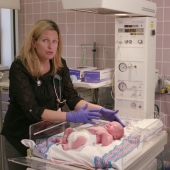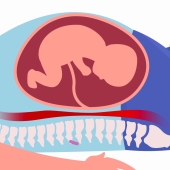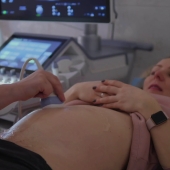Bleeding in late pregnancy may be a sign of placental complications or a vaginal or cervical infection. Women who bleed in late pregnancy may be at greater risk of losing the fetus and hemorrhaging (bleeding excessively). Bleeding at any time during the pregnancy should be reported to your physician immediately.
It is importantan to know the symptoms and treat them immediately.
If you are pregnant and experience:
- Uncontrollable bleeding.
- Dark blood in limited anounts with a sore, rigid uterus.
- Bright, shiny blood with intense abdominal pain.
- Dizziness, fainting, or unconsciousness.
Make sure that you seek medical attention immediately
Women who:
- Are 35 years or older
- Have had previous C-sections
- Have given birth 4 or more times
- Are pregnant with multiples
Are more at risk for experiencing hemorrhage:
- More than 1 out of 5 maternal deaths in the Americas are from hemorrhage
Find out what you can do to stop maternal deaths by hemorrhage:
- Visit your healthcare provider at least 4 times during your pregnancy, starting in the first trimester.
- Avoid a C-section unless your doctor says it’s medically necessary. When they are not medically needed, C-sections can increase the risk of complications during your current and future pregnancies, and provide no health benefits to you or your baby. Talk to your medical provider about what’s best for you.
- Take extra care to avoid accidents and injuries. If your partner or someone else makes you feel unsafe, talk to a trusted friend or family member and seek help.
- Have a plan ready for when you go into labor. How will you get to the health center? Who will accompany you? Do arrangements need to be made for other children or family members?
- After your baby is born, talk to your healthcare provider about when to have any future children, and how to prevent pregnancy in the meantime.
More info: http://www.paho.org/cero-muertes-maternas-hemorragia/?lang=en
- 7115 views













